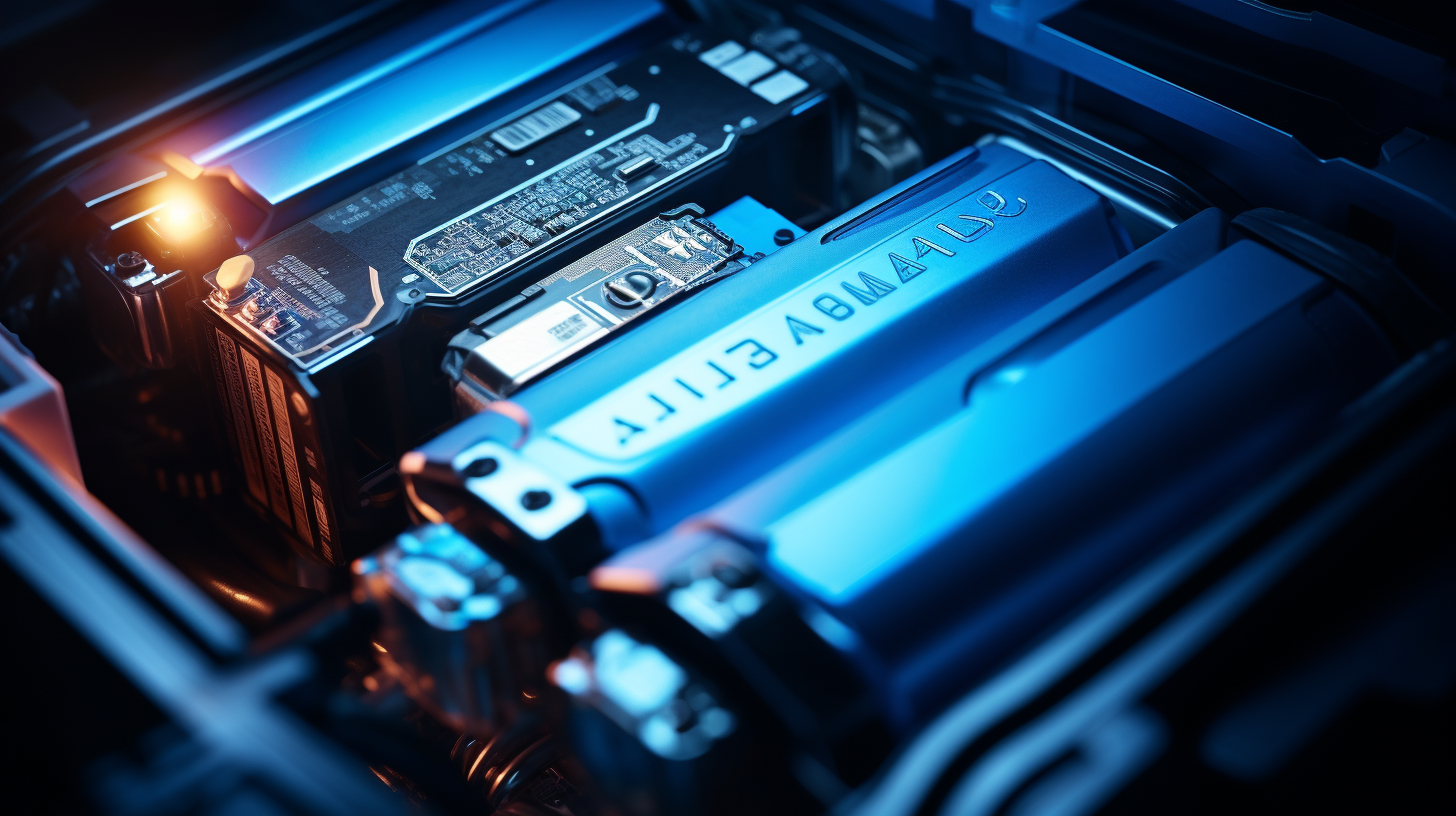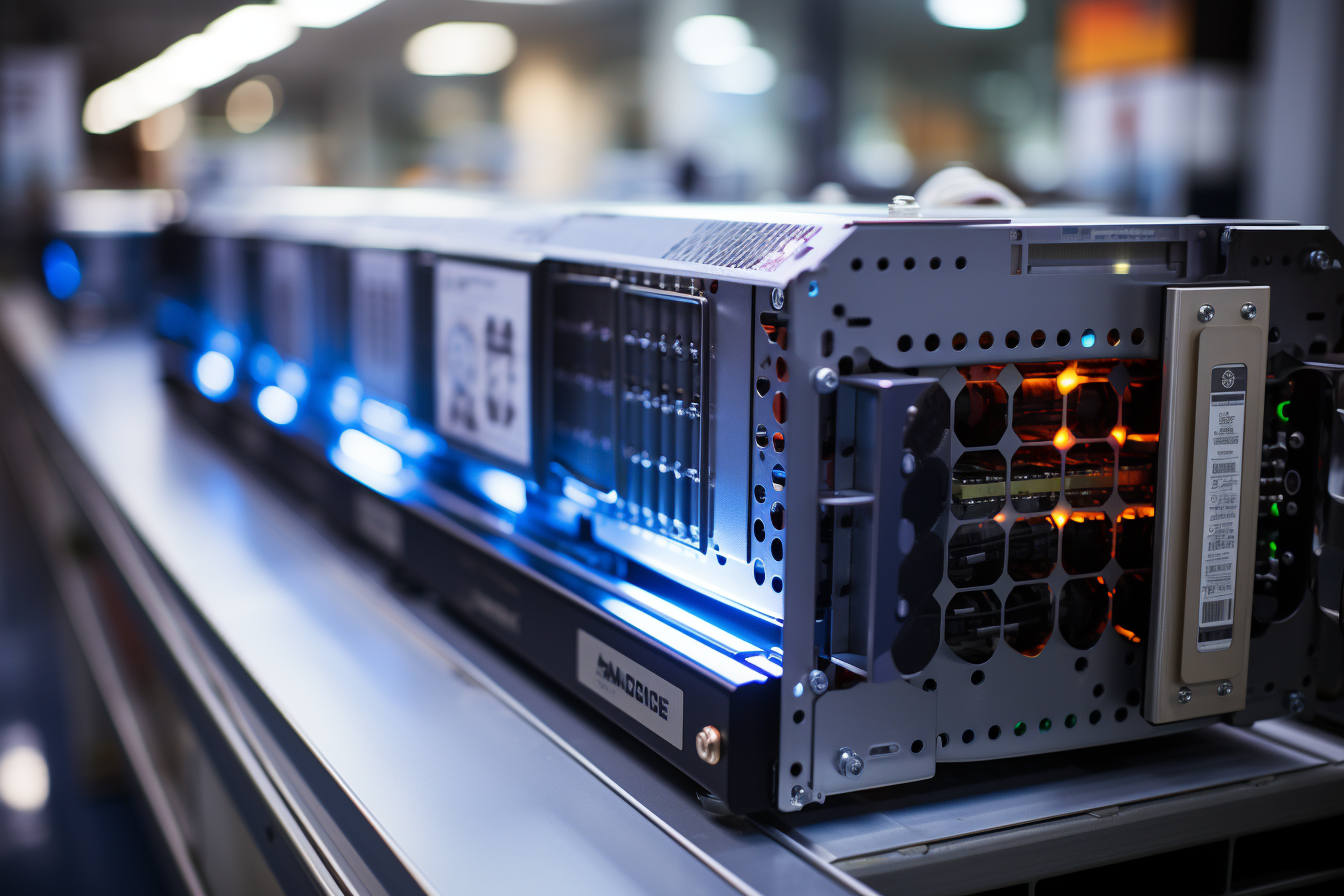Introduction to Battery Technology
It's undeniable; batteries have transformed the way we live. From the first primitive cells to the sophisticated powerhouses we use today, batteries have always been at the forefront of technological advancements. Their importance in our modern world is unparalleled, powering everything from our smartphones to cars.
 Battery Technology: The Race to Power Tomorrow's Devices and Vehicles
Battery Technology: The Race to Power Tomorrow's Devices and Vehicles
Over the past decade, there has been a significant push to develop better, more efficient, and environmentally-friendly batteries. Leading the charge are several key players who recognize the immense potential batteries hold for the future.
- Advancements in Recent Years
We've seen incredible leaps in battery technology. With increasing demand for longer-lasting and faster-charging batteries, innovations like graphene-based cells and liquid metal batteries have come to the fore.
- The Leaders in the Race
Companies such as Tesla, Samsung, and Apple are making notable strides. By investing heavily in research and development, they're aiming to unlock the next generation of batteries.
 Components of Modern Batteries
Components of Modern Batteries
To truly understand the evolution, we need to get acquainted with the fundamental parts of a battery.
- Anode and Cathode
These are the heart and soul of any battery. They're the main active materials and play a crucial role in storing and discharging energy.
- Electrolytes
Acting as the battery's bloodstream, electrolytes help transport ions between the anode and cathode.
- Separators
Separators ensure that the two main components, the anode and cathode, remain apart, preventing any potential short circuits.
 How Battery Technology Impacts Electronic Devices
How Battery Technology Impacts Electronic Devices
It's hard to imagine our lives without mobile devices. And the progress in battery tech has played a pivotal role in their evolution.
- Influence on Smartphone Evolution
Modern smartphones require powerful batteries. With the introduction of high-capacity cells, phones can now run for more than a day on a single charge.
- Wearable and Portable Devices
From fitness trackers to smartwatches, the importance of efficient batteries can't be overstated. They ensure our gadgets remain functional throughout the day.
 Implications for Electric Vehicles (EVs)
Implications for Electric Vehicles (EVs)
The automotive industry is in the midst of a paradigm shift, and batteries are at the heart of it.
- The Shift from Fuel to Electric
With global warming concerns, EVs present a green alternative. Enhanced battery tech ensures they're not just eco-friendly but also cost-effective.
- Longer Drive Ranges
One major hurdle for EV adoption was the limited range. However, with advancements in battery tech, EVs can now travel comparable distances to their gasoline counterparts on a single charge.
 Challenges Faced in Battery Development
Challenges Faced in Battery Development
Like any technology, battery tech faces its share of challenges.
- Technical Limitations
While we've made great strides, there's still a lot to be achieved. Issues like slow charging times and limited lifespans are areas of focus.
- Environmental Concerns
There's an urgent need to develop batteries that are not just efficient but also eco-friendly. The disposal of used batteries poses significant environmental challenges.
 Promising Solutions and Alternatives
Promising Solutions and Alternatives
The future looks bright with potential solutions on the horizon.
- Solid-state Batteries
Touted as the future, solid-state batteries promise longer lifespans and faster charging times.
- Energy Storage Innovations
Beyond traditional batteries, there's ongoing research into alternative energy storage solutions like supercapacitors.
 The Role of Major Companies
The Role of Major Companies
Big players have recognized the immense potential of batteries and are making game-changing moves.
- Tesla's Game-changing Moves
Under the visionary leadership of Elon Musk, Tesla is not just pioneering EVs but also advancing battery technology.
- Samsung and Apple in the Device Arena
These tech giants are in a constant race to provide devices with longer battery life, pushing the boundaries of what's possible.
 Economic Implications of Advanced Batteries
Economic Implications of Advanced Batteries
The ripple effects of battery advancements are felt far and wide.
- Job Creation in New Markets
As the demand for advanced batteries grows, so does the need for skilled labor, leading to job creation.
- Reducing Dependence on Oil
With a shift towards EVs and renewable energy storage, there's a potential reduction in oil dependence, reshaping global economic dynamics.
 Predictions for the Future
Predictions for the Future
The next decade promises unprecedented growth in the battery sector.
- What the Next Decade Holds
From devices that charge in minutes to EVs with ranges exceeding 500 miles, the possibilities are endless.
- Pushing Boundaries Further
While we've come a long way, the journey has just begun. The race to power tomorrow's world is on, and batteries are leading the charge.
 FAQs
FAQs
What are the major components of a modern battery? The anode, cathode, electrolyte, and separator are the primary components.
How do batteries impact the evolution of smartphones? They allow for longer usage times, enabling more powerful applications and functionalities.
Why are solid-state batteries considered the future? They promise increased energy density, faster charging times, and longer lifespan.
How are major companies influencing battery tech? Companies like Tesla, Samsung, and Apple are investing heavily in research and development, pushing the boundaries of what's possible.
What challenges does battery tech currently face? Technical limitations and environmental concerns are among the significant challenges.
How does battery tech influence the economy? It leads to job creation in new markets and potentially reduces global dependence on oil.
 Conclusion
Conclusion
Battery Technology: The Race to Power Tomorrow's Devices and Vehicles is more than just a trend; it's the future. As technology advances, the significance of efficient and sustainable batteries will only increase. The journey ahead is thrilling, with countless breakthroughs waiting to be unlocked. The race is on, and the future looks electrifying!